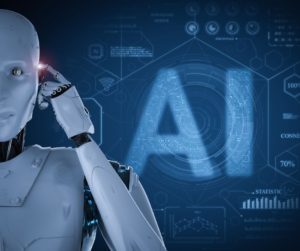OpenAI and the Revolution of Learning

You can’t escape AI. It’s all around us. Our kids are growing up with AI embedded at their fingertips.
Kids are already using AI when they ask Alexa to sing “It’s Raining Tacos” or ask Siri to open Roblox on their iPads. Kids can use apps to alter their clothes and facial features. And if your kids are using social media, AI tracks their habits, interests and preferences.
Generations Z and Alpha are… Generation AI.
As parents, there is a lot to anticipate regarding the impact of AI on our children. But right now, we can only speculate what this will be. The world changed dramatically as my generation grew up with the first computer in the household and the introduction of the internet. The world is about to change again… and quickly… so get ready!
Change can bring on anxiety but change is a part of the world we live in. Personally, I’m still adjusting to all the social media platforms and the fact that we can use them as search engines or to maintain relationships!
Plagiarism Is Not The Concern
How will AI affect our children’s education? Truly, we don’t know yet and opinions seem to differ.
The launch of ChatGPT in November 2022 created quite a stir and seems to now be accelerating our use of AI.
ChatGPT provides answers to the most complex requests almost instantaneously. From generating code, writing contracts, to writing poetry and essays, the information provided is mostly accurate. The latest version of ChatGPT, GPT-4, can also produce images and ace the Bar Exam.
Many critics worry that homework will become obsolete as students use OpenAI to cheat on assignments. In a matter of seconds, this technology can create a 1000 word essay on the topic of choice, including references. This is why developers have already created software which detects AI generated text. But let’s flip the switch because focusing solely on plagiarism is a narrow-minded approach.
I am of the opinion that AI won’t make homework obsolete but will change the type of learning methods offered to our children, allowing for more creativity and deeper application.
As I grew up, teachers focused on penmanship. Remember cursive? But as technology made “writing” scarce, we didn’t stop working. We pivoted and typing became the norm.
My point is that education naturally changes with the times as we do. The invention of the calculator did not obliterate math homework. On the contrary, calculators continue to help students understand how to find the answer.
Embrace OpenAI With Open Arms
There are a multitude of reasons that AI will function favorably for students and educators.
A teacher in Oregon asked students to use ChatGPT to create an outline for their essay topic. Once they generated their outlines, they were to hand write their essay in the classroom using that outline. The intent of generating their outline using ChatGPT was to teach them how to use AI to efficiently create a blueprint for their essay. It was used as a tool to plan and organize.
Imagine teachers also being able to use AI to personalize lesson plans for individual students or to create new ideas for their classroom. Tutoring for children will also be enhanced by AI technology.
I anxiously await virtual reality courses allowing students to be immersed in new settings and scenarios. Imagine our kids being able to see the dissection of an animal without having to use an actual animal. Students will have these opportunities as well as access to top universities around the world without ever leaving their classroom.
Today, AI classes and camps are already being offered where kids learn the art of teaching computers how to think. Students code and program their own computer brain. Instead of our kids being a slave to AI, let’s show them how to become creators and leaders of this evolution.
The Negative Impact
Opinions on the negative impacts of AI are valid. People using AI to change their appearance to catfish, using AI to change our own appearances, privacy concerns, and engaging with AI that is imbued with racism and sexism are all an unfortunate reality.
When it comes to education however, teachers started dealing with plagiarism almost as quickly as OpenAI generates a response. So, what is the next AI challenge that teachers will meet? We can only wait and see.
Some skeptics question AI replacing educators and superintendents. Is that a possibility if AI is emotionless? Platforms like GPT-4 can provide a series of sentences but cannot express the emotion in ideas and arguments. Like Alexa and Siri, artificial intelligence is code thus emotionless… at least for now.
Children still need emotion to learn. Emotion has a substantial influence on the cognitive processes in humans, including perception, attention, learning, memory, reasoning, and problem solving.
Where Do We Go From Here
Our world is being transformed by technology and we have the opportunity to give our children a curriculum to create innovative ideas which will positively affect our world. After all, AI is man made.
As parents, we worry about our children’s dependence on digital devices and technology. But we can’t bury our heads in the sand. We didn’t grow up with these tools but our kids were in fact born with them.

Comments are closed